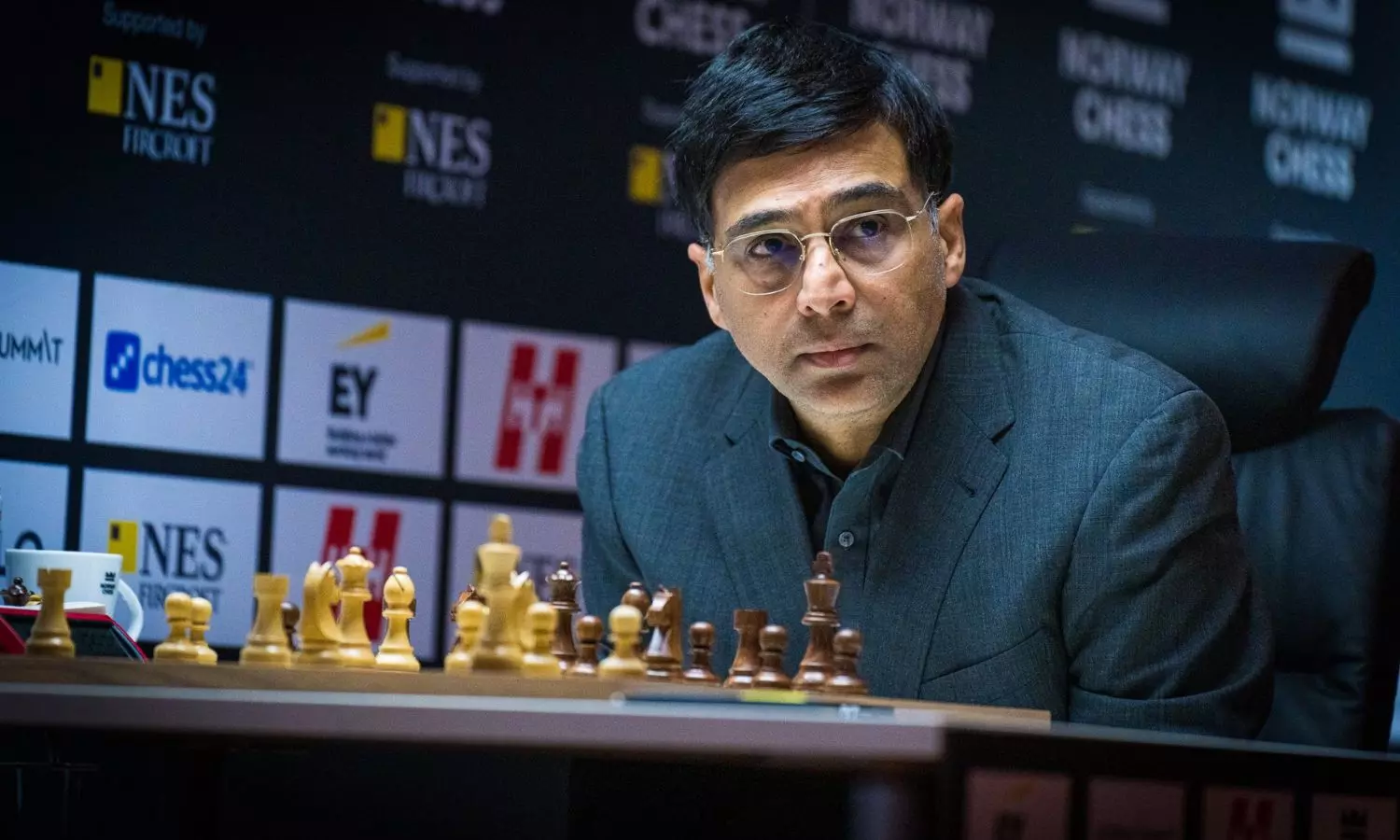Why Chess Is So Popular In India ?
Did you ever wonder...

OK, it may not quite be at Russia’s level but if you want to find a place
in this world where they revere chess and chess players, it’s India. They have
a huge number of chess players, dozens of grand masters and there’s a constant
level of growth in interest in the game too. So, what is it that makes the
subcontinent such fertile ground for those who love chess?
Why is chess so popular in India? India is a nation that celebrates
intellectual and cerebral pursuits and chess is the ultimate test in both. India’s
first ever world chess champion, Viswanathan Anand, contributed greatly to the
rising popularity of chess in his motherland. Moreover, as India grew wealthier
in recent decades, and internet access became widespread, more and more people
find chess to be an appealing hobby.
Here are some fascinating things about chess in India.
How Popular Is Chess In India?
Chess in India is incredibly popular. They estimate that around 70% of
all adults in the country have played chess in their lives at some time or
another. What might come as a huge surprise though is how many Indians carry on
their passion for chess throughout their lives.
Whereas in many countries, where people play chess when they are young and then give it up at some point in early adulthood, India’s chess players continue their love for the game as they grow older. In the group of ABC1 consumers, that is the most affluent group of consumers, 70% of Indians claim to have played chess in the last month – that’s 85 million people out of 121 million!
But where did this love for the game come from? And will India ever overtake Russia as the home of chess globally?
Did Chess’s Indian Beginnings Have Anything To Do With Its Popularity?
Chess is thought to have been invented in India. It is said to have arisen from either Chaturanga which was then adapted to become Shatranj which would be played in Persia and the Middle East for many centuries before being adapted into modern chess at some time in the 10th century in Spain or Sicily (both of which were Muslim controlled territories at the time).
However, despite the game’s Indian roots, it seems unlikely this plays much part in the modern game’s popularity in India. It may give players a brief moment of pride when they first learn of the origins of the game but it’s not a motivating factor to play a game for years and so many noble arts, sports, etc. have begun in India that an Indian who tried to commit to all of them would probably die of exhaustion by the end of the week.
Tamil Nadu: The Roots Of Modern India’s Chess Craze
Manuel Aaron of Tamil Nadu was the big figure in Indian Chess circles during the 1960s, 1970s and right up until the end of the 1980s. He would manage to take the Indian National Chess prize 9 times, which was a record. He was selected to represent India at the Olympics many times.
He was the country’s first International Master too. And he did it on a budget of next to nothing. In fact, times were so hard for Aaron that he had to sell many of his cups at the market to make ends meet and when the government gave him the prestigious Arjuna Award, it wasn’t clear that he would attend to collect it because he wasn’t certain he could afford to do so!
Once he had finished lighting the way for Indian chess on the international stage, he would contribute a huge amount to the development of the game in India and would be the secretary for the All India Chess Federation for many years.
The Big Indian Chess Star: Viswanathan Anand

When Viswanathan (known as “Vishy” to his friends, fans and countrymen) Anand won the National Sub-Junior Indian Chess Championship at the age of 14, everyone knew that India had found someone special. He won the tournament with 9 points out of a maximum of 9, an unbelievable feat.
In 1988, he became India’s first Grand Master. In 2006, he became one of a select group of players to gain an ELO Rating of more than 2800! He has won the word chess championship 6 times. The first time in 2000 when he beat Alexei Shirov. He was dethroned in 2013 by Magnus Carlsen, the current world champion.
He is the only sportsman in India to have received the Padma Vibhushan (the country’s second highest honor for civilians) and he has won the Rajiv Gandhi Khel Ratna award which honors the country’s finest sporting individual too.
He is one of the most influential figures in India and it was his success that ignited India’s interest in chess.
The Rising Internet Access In India
Being interested in something and doing something about that interest are two different things and had Vishy’s success come about 20 years earlier, it is quite possible that India’s explosion of love for chess might never have brought the lasting devotion to the game that it has.
However, as Vishy’s fame rose, so did the ability of the average Indian person to get online. There they could not only learn chess, but they could also play against each other and practice together. Thus, enabling them to make their desire to play chess, a reality.
Chess Education In India
Never a group of individuals to miss a commercial opportunity many within the Indian chess establishment realized that this meant a huge opportunity in creating online chess education programs and the Chessbase India program for Quality Chess, for example, have meant that all but the poorest in the country can now get targeted, helpful assistance to improve their game.
Many chess coaches in the country work exclusively online with rates of $30 an hour or more not uncommon! This is in a country where the average hourly wage is just $2.44 a day!
The All India Chess Federation

However, it’s also worth noting that while national associations may not be the “glamor” side of chess, The All India Chess Federation has been a superb influence on the country’s burgeoning scene. Creating a health competitive environment to allow chess players to rise up through the ranks from a young age and learn to take on players of similar abilities in order to grow.
They organize more than 300 tournaments a year and their efforts have seen India become the undisputed champions of junior chess globally.
The Affordability And Availability Of Travel In India
Another development has helped the All India Chess Federation make chess accessible to Indian youth and that’s been the dawn of the era of low-cost travel. India is a huge country and until the arrival of low-cost airlines flying to one side of the country from the other was something that only the richest might afford.
To travel without flying, however, might take days or weeks and there would be no guarantee of arriving at any given competition in a good state or even on time.
Cheap flights mean that those who compete well, can afford to make appearances on the tournament circuit and gain the experience they need to compete internationally.
The “Big Money” Allure Of Chess In India
The rising popularity of chess in India bas brought money to chase that interest and now, while not paid a fortune in international terms, many of India’s better chess players can make a decent living out of sponsorship arrangements and that allows them to focus more effort on their game.
And the better India’s players become, the more players that are drawn to the game in the first place, there is an exponential increase in the number of grand masters produced by India each year now. Prize money and sponsorship have made this possible.
The Future Of Chess In India
For Indian chess, the future’s so bright, it might need to start wearing shades. The country’s love affair with the game shows no signs of diminishing and their success at the junior level is likely to be repeated at the global level with another decade or two of experience. In fact, we suspect that it won’t be long before India displaces Russia as the dominant force in chess.
Conclusion
Why is chess so popular in India? Chess was the kind of game always likely to appeal to an Indian public which prizes cerebral achievements and intellectual pursuits. It was given the public’s full attention when Viswanathan Anand became the world champion.
At the same time India and Indians, in general, found themselves with more spare time as their country grew wealthier and the opportunity to study chess online presented itself alongside a rising tide of excellent quality chess education. The drive of the All India Chess Federation and the lower cost and growing availability of travel created a competitive chess marketplace which draws in those in search of “big money”.